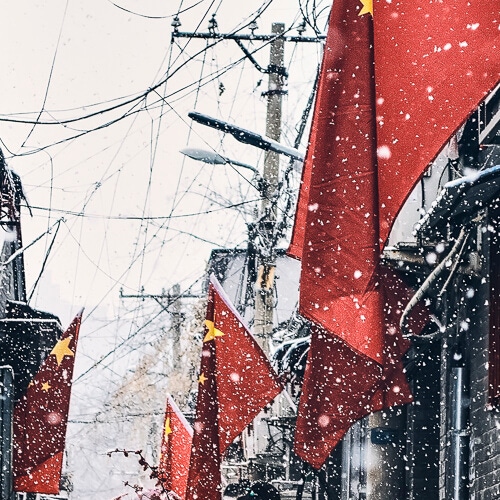China's top legislature is set to pass an Export Control Law expanding government controls over tech exports, copying a similar US measure in May.

Taking a leaf from the Trump administration's book, China appears poised to pass legislation placing restrictions on its technology exports, as the tech Cold War between Beijing and Washington chills further.
China's supreme legislative body, the National People's Congress Standing Committee, is set to pass this Export Control Law in its session which began on October 13 and ends October 17.
Figure 1:  It's cold outside: The tech cold war between China and the US is reaching sub-arctic.
It's cold outside: The tech cold war between China and the US is reaching sub-arctic.
(Source: zhang kaiyv on Unsplash)
The law creates a control list of sensitive technologies and materials which cannot be exported without special governmental license.
Furthermore, it explicitly sets out that one of its purposes is to permit Beijing to take retaliatory measures against countries that have "abused export control measures and damaged China's national security and interests."
China's stance on the export of technology, including algorithms, is crucial in whether Beijing will approve transfer of TikTok's US operations to a new company, TikTok Global, in which Oracle will have a 12.5% stake and Walmart 7.5%, alongside other investors.
This is the third review of the draft law which China's Ministry of Commerce first published in June 2017. There were previous reviews in December 2019 and June 2020, which substantial changes to the legislation during each, said the Xinhua news agency.
Code review
The draft language in this third review is couched more in terms of safeguarding national security and interests, said Xinhua. The original draft, when submitted by Minister of Commerce Zhong Shan, paid more attention to honoring China's international obligations in nonproliferation.
The law also now clarifies that export-controlled items of technology include data, including technical data.
The third draft further specifies that exporting controlled items illegally would constitute a criminal act, in addition to incurring administrative penalties.
One member of the body, Ouyang Changqiong, argued that source code and algorithms employed in technology should also receive explicit mention in the law, added China's official Legal Daily.
Another legislator and former ambassador to the US, Zhang Yesui, argued that China should especially use the law to protect its position in areas where it enjoyed technological advantages, including quantum communications technology and 5G.
US officials have noted Huawei controls one tenth of important 5G patents, while Shenzhen's SZ DJI Technology accounts for around 70% of the world's consumer drone market.
Access to vast reserves of user data in areas like facial recognition have boosted the position of Chinese companies in artificial intelligence, including both large incumbents like Alibaba and Tencent and upstarts like SenseTime.
Mindful of the interests of Chinese tech companies, lawmakers did argue that the legislation should not penalize technology companies too harshly, especially inadvertent violators.
Article 39 of the draft Chinese law says a business which has violated the law cannot apply for export licences until five years later. Legislator Lu Wei argued this should only hold for serious offences.
The Standing Committee is a body of 175 members, elected by the National's People's Congress which meets annually and has 2,980 members.
Moving on out
China's saw both its exports and imports make massive gains in September 2020, as the global economy restarts.
Chinese exports were up 9.9% from the same month a year earlier.
Over half of these exports were from China's tech sector. Personal protection equipment and technology required to work from home both figured largely in Chinese exports.
Want to know more about security? Check out our dedicated security channel here on Light Reading.
Meanwhile imports grew 13.2%, as China's tech sector stockpiled ahead of US export controls taking effect.
The Trump administration in mid-May announced US companies will need to receive government licenses before selling Huawei any microchip made using US equipment or software.
The US commerce department relaxed this slightly in June, saying US companies could share some export-controlled technology with Huawei in the context of setting international 5G standards.
Related posts:
— Pádraig Belton, contributing editor special to, Light Reading
Read more about:
AsiaAbout the Author(s)
You May Also Like











